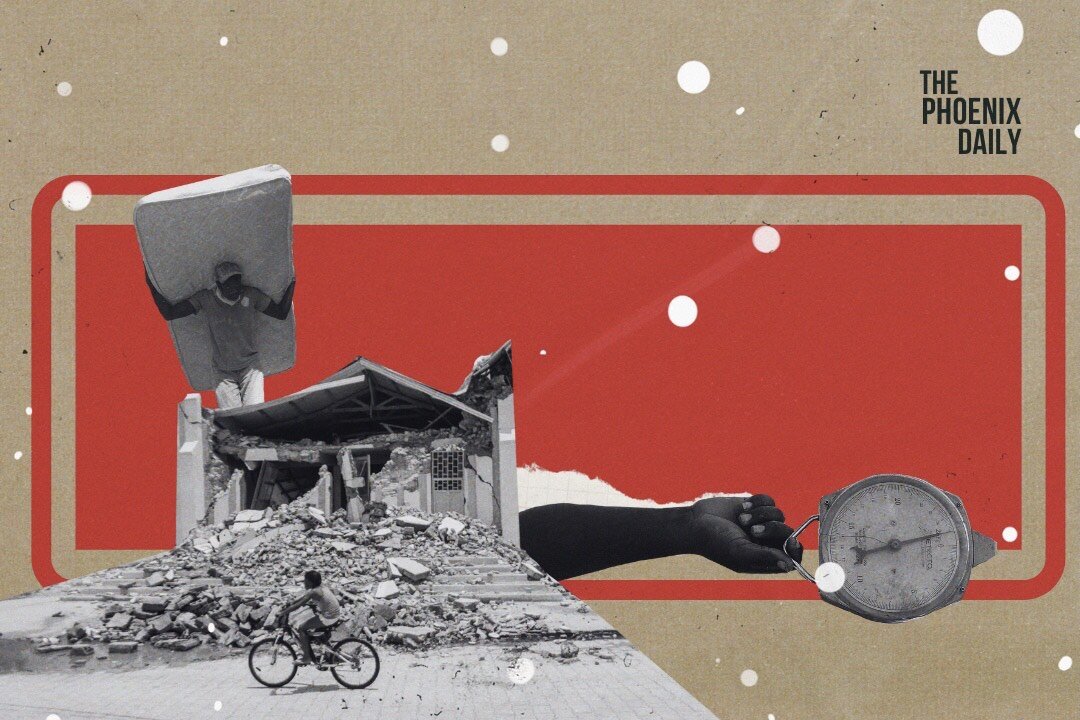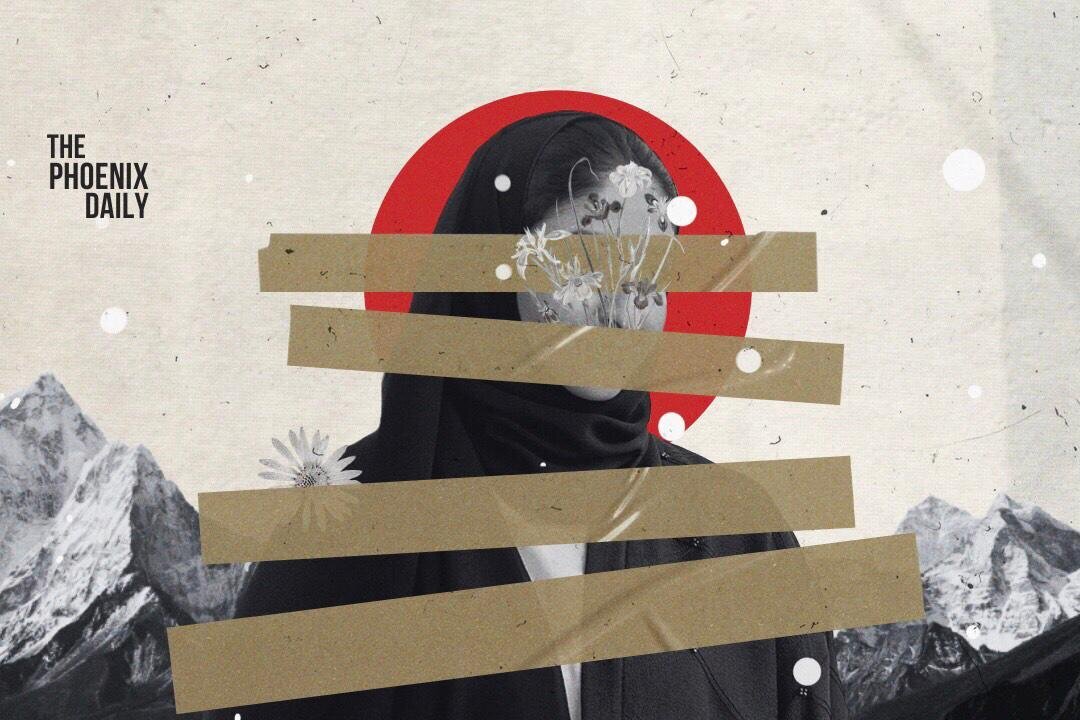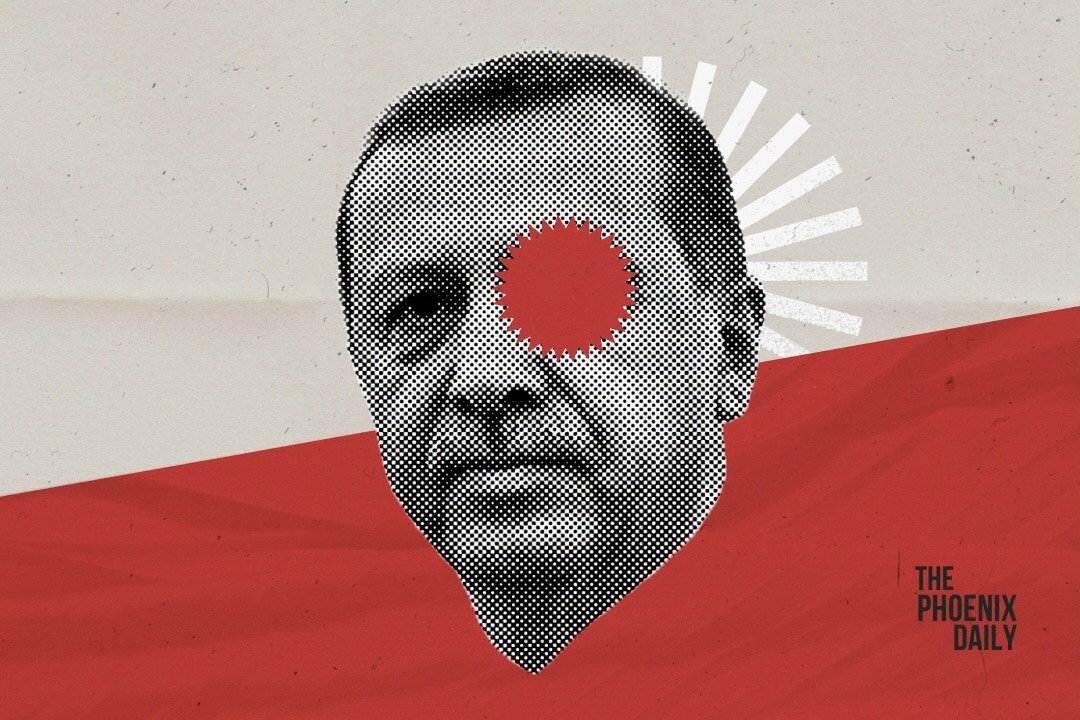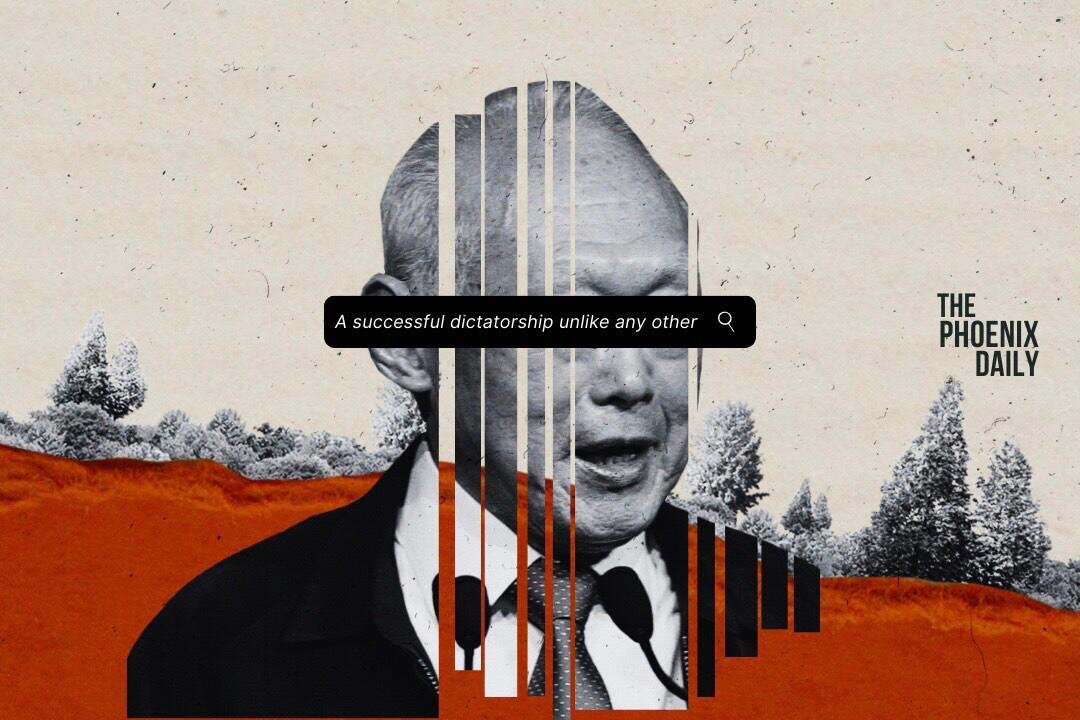
International News, Analyses & Opinions

The UN at a crossroads - With all of its wrongdoings, is it time for a new one?
Opinion analysis by Zeina Dagher, Featured Writer
How many times have we heard – or even said: “But where’s the UN?!” after reading or hearing about a disaster occurring somewhere in the world? In light of many recent events that characterize our 21st century, pointing out its failures isn’t a difficult task. However, it seems like the world isn’t debating whether the UN is in decline or not – the answer is very clear. Rather, some have moved on to another question: what do we have to replace it with? Yet, one can’t help but wonder: are we being too harsh on an institution that, we have to admit, has helped millions globally over the years? What is causing its decline? Is it still salvable, or would replacing it with another international institution be better for our modern necessities?

A Fight Against Time? - What the political changes of the post-covid era look like in the Middle East
Opinion analysis by Nour AlMortada, Featured Writer
World leaders stated that the world post-covid will not be the same, and the balance of power much of the youth were born into, will no longer stand the test of time. The Middle East is no different. World leaders tend to treat states as limited bodies of certain individuals, where if the leader is pleased, the country is pleased. Revolutions have proven to the world that this is simply not the case, and as more people exercise their right to protest and demonstration, we ask ourselves this: who will survive? Recent social changes have led to viewpoints on current leadership to shift and with the release of the pandora papers, who is safe? So, can today’s already established monarchies and governments continue, or is it just a fight against time?

Oil Economics and The Gulf States - A closer look at Saudi Arabia’s plan for the future
Opinion analysis by Pau Luoning, Contributor
The recent acquisition of Newcastle United FC by a Saudi wealth fund might have came as big news for many football fans in Europe and elsewhere. Taking a closer look at the most recent state of affairs, however, it is clear many oil-dependent economies from the Gulf are starting to invest big sums of money in many different areas much different from the energy sector. The trend is clear: they are diversifying, be it tech, real state or be it sport.
In a context of decarbonisation, countries are increasingly trying to transition from carbon energies to more sustainable and greener ones. Oil has long been the mainly source of wealth for many countries in the Gulf and elsewhere. But an entire economy too reliant in only one resource is a vulnerable one. For this reason, leaders of many oil-states are smartly starting to think for a prosperous diversified economy, which is not dependable on oil. Although not intended, these economic reforms might start to pave the way for a process of democratization. What will happen, only the time will tell.

Bitcoin: The Dawn of a New Monetary System? - The origins and implications of Bitcoin’s legal tender status in El Salvador
Opinion analysis by Georges Haydar, Contributor
When you think of Latin America, your mind might wander about Che Guevara, Cohiba cigars, Pablo Escobar, or, if you’re an adept follower of the cryptocurrency world, El Salvador's latest stunt. The tiny republic, in an effort spearheaded by its president Nayib Bukele, has made Bitcoin legal tender, an unprecedented move that has the potential to redefine international monetary policy. While the move is ambitious and has attractive upsides, it also possesses a few caveats that could prove deadly for this small Central American enclave.

The Oppression of the Flag - How states use nationalism as a means to control and silence
Opinion analysis by Nour AlMortada, Featured Writer
The concept of nationalism is usually traced back to the French revolution, but the truth is, it was not born then: it had always existed as a means of keeping insurgencies at bay. Think about an American citizen siding with communism during the Cold War. Now, compare that with nationalism in the MENA region. Shedding nationalism is not an abandonment of the state, but rather an abandonment of the illogical ties to a man-made government, which would then allow genuine change, since the state and the land are no longer convoluted. And so, the expectations we have for our systems are no longer obscured by our blind loyalties which manifest in our submission and complacency.

The Dangers of the “Middle East” - How the term “Middle East” contributes to a dangerous mindset
Opinion analysis by Nour AlMortada, Featured Writer
The term “Middle East” itself has no scientific nor intellectual basis: not in history, nor in geography, and certainly not in ethnicity, race, or language. And so, where did it originally stem from? Well, the answer is colonialism. The countries enshrined within the context of this term are some of the richest in the world and their history is proof of this. However, neo-colonialism, which emulates itself through humanitarian interventions or wars of interest, “the war on terror” being a prime example, continues to setback the region. The continuous use of this term contributes to the neo-colonial narrative, leading to issues such as the crumbling of centuries-old civilizations.

Biden’s Diplomatic Blunders - The President’s Failures in Foreign Policy May Spell Doom for his Administration
Opinion analysis by Johnny Achkar, Staff Writer
The debacle in Afghanistan has damaged the Biden administration's foreign policy ambitions. Yet, it is merely a more recent example of a failure that the administration has achieved in foreign diplomacy.

Media Literacy: The Most Important Skill in The 21st Century
Opinion analysis by Albert Geokgeuzian
Media literacy is the ability to access, analyze, evaluate, create and act using all forms of communication. We are constantly surrounded by media, whether that’s our phones, our laptops, the TV, the radio, etc. despite being constantly surrounded by media, most of us are terrible at actually understanding the media landscape, that’s because of how our brains work. We need to learn to be better at understanding the news because if we don’t, “the truth” will only be a matter of perspective.

Haiti Under the Rubble: Deadly earthquake tears the country apart – 2010 all over again?
News Analysis by Maria Wehbe, Staff Writer
On August 14th, 2021, a 7.2 magnitude earthquake rocked Haiti, killing at least 1419 people, and injuring more than 6900, with hundreds still missing. According to CNN, the earthquake has affected 1.2 million people overall, including 540 000 children. Indeed, the country is still recovering from another strong earthquake that took place 11 years ago and the recent assassination of its president, Jovenel Moise. Unfortunately, Haiti’s unique geology makes it seismically active, thus, more prone to devastating earthquakes as such. Additionally, the rescue efforts were hampered by Tropical Storm Grace, which brought heavy rains and very harsh weather conditions.

Islam, Women, and War - Utilizing Western Stereotypes Against Muslim Women
Opinion Analysis by Dima Yehia, Visiting Contributor
With the declaration of the War on Terror, the US launched its marketing campaign that helped gain the public’s support. The efforts to justify the war included multiple discourses that operated for the benefit of characterizing the war as mundane. Some of these were set by women who were used as part of the justificatory approach. As such, American women and stereotyped Muslim Women eased the way and mobilized public support through framing them in normative gender roles.

Shutting Down Democracy - How Governments Suppress Democracy through Internet Blackouts
Opinion analysis by Johnny Achkar, Staff Writer
Governments are increasingly compelling telecommunications to turn off web service in neighborhoods, regions, or entire countries, often for months, as Internet shutdowns become a favorite tool of oppressive states.

Nature Takes Its Revenge - Climate Change Around The World In 2021
Opinion analysis by Cherly Abou Chabke, Featured Writer
As if the world hasn’t been through enough already; from COVID-19 to political instability, the stock market crash, and racial injustice, it seems as though today, the Earth wants payback after all these years of neglecting what is most important: the planet itself. The summer of 2021 perfectly embodies the manifestation of the blatant attacks on our ecosystems and heightened once again, the incompetence, the lack of action and carelessness of governments in regards to Climate Change. However, this issue seems to be stirring up today, more propaganda than usual for the sole reason of it ravaging the 4 corners of the earth, all at once.

The Olympic Games: A Race For Soft Power - The story of China’s success, among many others
Opinion analysis by Pau Luoning, Contributor
Sports and politics are often intertwined, and Olympic Games are so much more than just sporting games and events: they are the true definition of the fight for soft power. Be it by hosting the games or by winning the most medals, nations coincide with one another to gain cultural prestige and attractiveness that are very useful in the world of politics, especially on an international scale. The end of the Tokyo 2020 Games has confirmed the steady trend of the last couple of years: China rising as a superpower. Is this a coincidence? It is important to take a closer look at the link between the Olympics and soft power, whilst taking the Chinese success story as an example.

20 Years On: The US Withdrawal from Afghanistan
Policy Analysis by Roa Daher, Featured Writer and Nicole Vassilissa Cozza, Visiting Contributor
Last April the US president Joe Biden announced the end of the American Impasse in Afghanistan, after almost twenty years of military operations in the country. Although the announcement is linked to the Biden administration, it should be pointed out that the current president has done nothing but continue on the line inaugurated by his predecessor. Biden in fact confirmed, or rather accelerated, the process of military withdrawal started by Donald Trump on the basis of an agreement reached with the Taliban in the framework of the Doha agreements.

Divide to conquer - The Dark Side of Social Media
Opinion analysis by Anthony Ahrend, Featured Writer
Social media. Are we underestimating its power? It allows us to connect one end of the world to another. However, this online world can have repercussions on the real world, as we saw with Facebook and its owner Mark Zuckerberg who got accused of contributing with dark money and enabling election fraud in 2020. The border between online and reality is really thin. Users are confronted with information from the whole world, directly or indirectly. But what are the consequences of social media on our society, especially on the political aspect of society? I will divide this article into four parts: old vs young, transparency, polarization and last but not least: cancel culture.

SOS Cuba: What is going on in Cuba, and what of US sanctions?
Opinion Analysis by Gaia Bchara, Featured Writer
Cuban protesters took to the streets on the 11th of July, 2021 in a move sparking international attention, solidarity, and even criticism. The reasons attributed to the eruption of the ongoing protests are multi-dimensional, yet the chief cause behind Cuba’s crisis remains heavily contested. One camp blames US sanctions, the other Castro’s legacy of authoritarianism. Any discussion about Cuba will inevitably prompt both objections, and almost any subsequent argument tends to agree with one over the other. Let’s talk about sanctions and the making of democracies.

The Long Arm of Despotism - How Erdogan Silences Dissidents Abroad
Opinion analysis by Johnny Achkar, Staff Writer
Mr. Erdogan holds a firm grip over his nation today, after having crushed any sort of opposition by jailing journalists and silencing political opponents. The President of Turkey has now set his sights at suppressing opposition abroad.

Athletes being pushed over the edge - Tokyo 2020 Olympics stir concern over athletes’ wellbeing
Opinion analysis by Maria Wehbe, Featured Writer
Simon Biles, an Olympic gold medalist, withdrew herself from the women’s team gymnastics final at the Tokyo 2020 Olympics on July 27th, whereby she did so in an attempt to protect “her body and mind”. “Whenever you get in a high stress situation, you kind of freak out. I have to focus on my mental health and not jeopardize my health and well-being. Those competing aren’t just athletes; we’re people at the end of the day”, said the 24-year old. This raises a lot of red flags when it comes to the way athletes are treated today and mental health concerns became the center of attention of the Tokyo 2020 Olympics.

The War on Terror - The Revival of National Manhood
Analysis by Dima Yehia, Visiting Contributor
Ever since the Vietnam War, followed by the 9/11 attack which caused the collapse of the Twin Towers, the United States of America has been on a mission to redeem its phallus. A war that changed the rules of war and operated through multiple gender frameworks. Gender shaped the war on terror, managed to reestablish power dynamics into the hands of the US, and maintained the status of its infamous equality even though it is not the case.

Singapore: An Authoritarian Success Story
Opinion Analysis by Johnny Achkar, Staff Writer
Singapore's economy is one of the most powerful in the world. With a thinly veiled type of authoritarianism, it is anchored in political stability, low corruption rates, and transparent public institutions. A successful dictatorship unlike any other.

